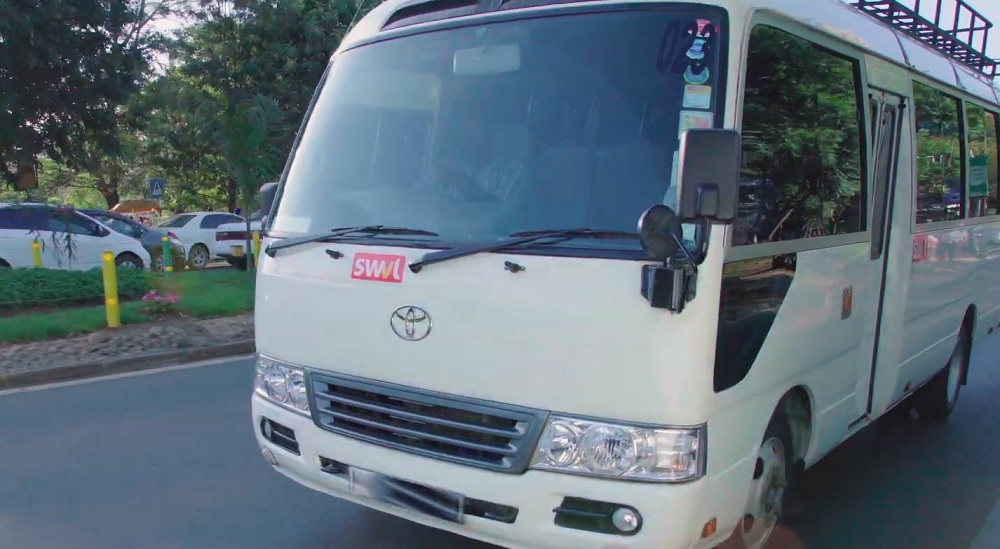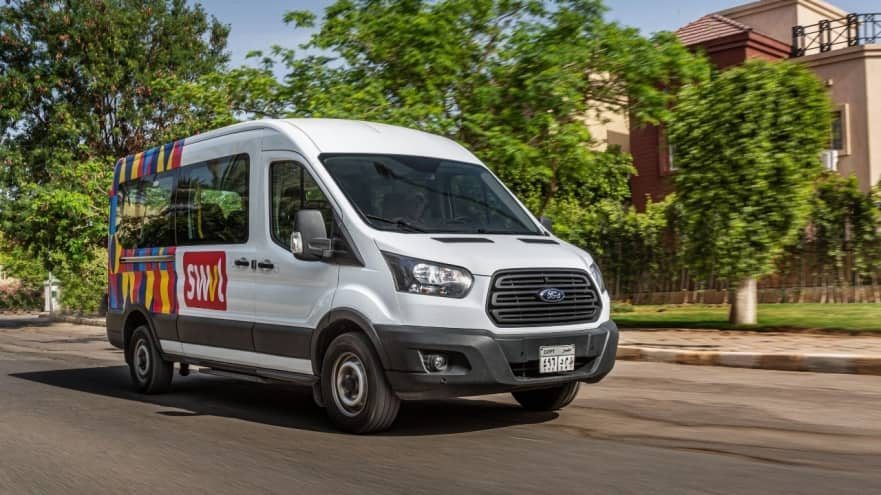Free WiFi and Online Entertainment On Public Buses? That’s What SWVL Just Launched in Kenya
The disruption game is on. Swvl has raised more money and it is currently staging a major feat in Kenya. Swvl riders in Kenya will now save their MBs while onboard Swvl buses, as well as have access to online entertainment, similar to the experience you have onboard a plane with mini TVs sticking into your faces.

Here Is All You Need To Know
- This innovation is by way of a partnership with BRCK, a Nairobi-based startup.
- The partnership will see BRCK installing free WiFi and online entertainment on its buses in Kenya.
- The Kenyan BRCK startup has developed a rugged, self-powered mobile WiFi device for internet connectivity in areas with poor infrastructure.
- These WiFi routers are being installed by BRCK in Swvl buses to have riders access the internet using Moja, a free WiFi network BRCK that also comes with entertainment content including Music, TV shows, cartoons, and books.
- The users can access free content by downloading Moja’s Android app.
- BRCK has already installed its routers on 15 Swvl buses and is expected to take this number to 700 by 2020.
- Swvl is paying a monthly fee to BRCK for installation and maintenance of the routers.

Extension To Other Markets Outside Kenya
- Swvl and BRCK have not confirmed if they plan to extend their partnership to other markets where Swvl operates.
- BRCK’s network is already available on a large number of minibuses (Matau) in Kenya and Rwanda with over 445,000 unique monthly active users, TechCrunch reported citing company data.
- Swvl, since launch in 2017 in Cairo, has expanded to Alexandria, Nairobi, and Lahore, with tens of thousands of daily bookings in these markets. The startup had recently raised $42 million in one of the largest tech investment rounds of MENA. Careem had also announced last month that it will be providing free WiFi to all the riders in UAE.
This is a classic way startups can effectively leech on to the existing value chain.
Swvl’s Business Model
- SWVL’s goal is to make it easier for Egypt’s residents to book bus rides at a fixed rate on existing routes.
- Users schedule trips, pay online or in cash and are given virtual boarding passes.
- Even with fierce competition from the likes of Buseet and Uber vying into premium public transport service, SWVL’s application has been downloaded for well over 360,000 times on Google play store and Apple iStore.
- The platform completes 100,000 rides monthly.
- It was the first company to introduce the service in Egypt in 2017 before Careem and Uber joined the sector late last year.
- Swvl is however different from its competitors because of its series of partnership deals. The startup’s credit facility agreements with Nasser Social Bank and EFG Hermes Bank, and after-sales support and maintenance services with Ford-trained technicians are some of these moves.
- What Egyptian SWVL users think about the startup is its priority on affordability, comfort, and safety.
Not Afraid Of Competition
Although Swvl is the first riding app to offer bus services in Egypt, giant transportation startups Careem and Uber have recently offered their own bus services.

Mostafa Kandil, Egyptian CEO and founder of Swvl, has however noted that the joining of Uber and Careem to the industry has not influenced Swvl’s growth asserting that they have witnessed remarkable development since the two competitive players have launched.
In 2018, the startup was valued at nearly US$100 million, becoming the second Egyptian company after Fawryto reaches these figures.
The startup has recently signed an agreement with Ford motor company to deploy more cars on the road. Ford Transit, which the startup intends to use is already the third best selling van of all times. SWVL is already in possession of about 100 Ford Transits. Hazem Taher, SWVL’s Head Marketing Manager, said the vans were ready to go and they’re excited to push them on SWVL’s route.
Charles Rapulu Udoh

Charles Rapulu Udoh is a Lagos-based Lawyer with special focus on Business Law, Intellectual Property Rights, Entertainment and Technology Law. He is also an award-winning writer. Working for notable organizations so far has exposed him to some of industry best practices in business, finance strategies, law, dispute resolution, and data analytics both in Nigeria and across the world.





